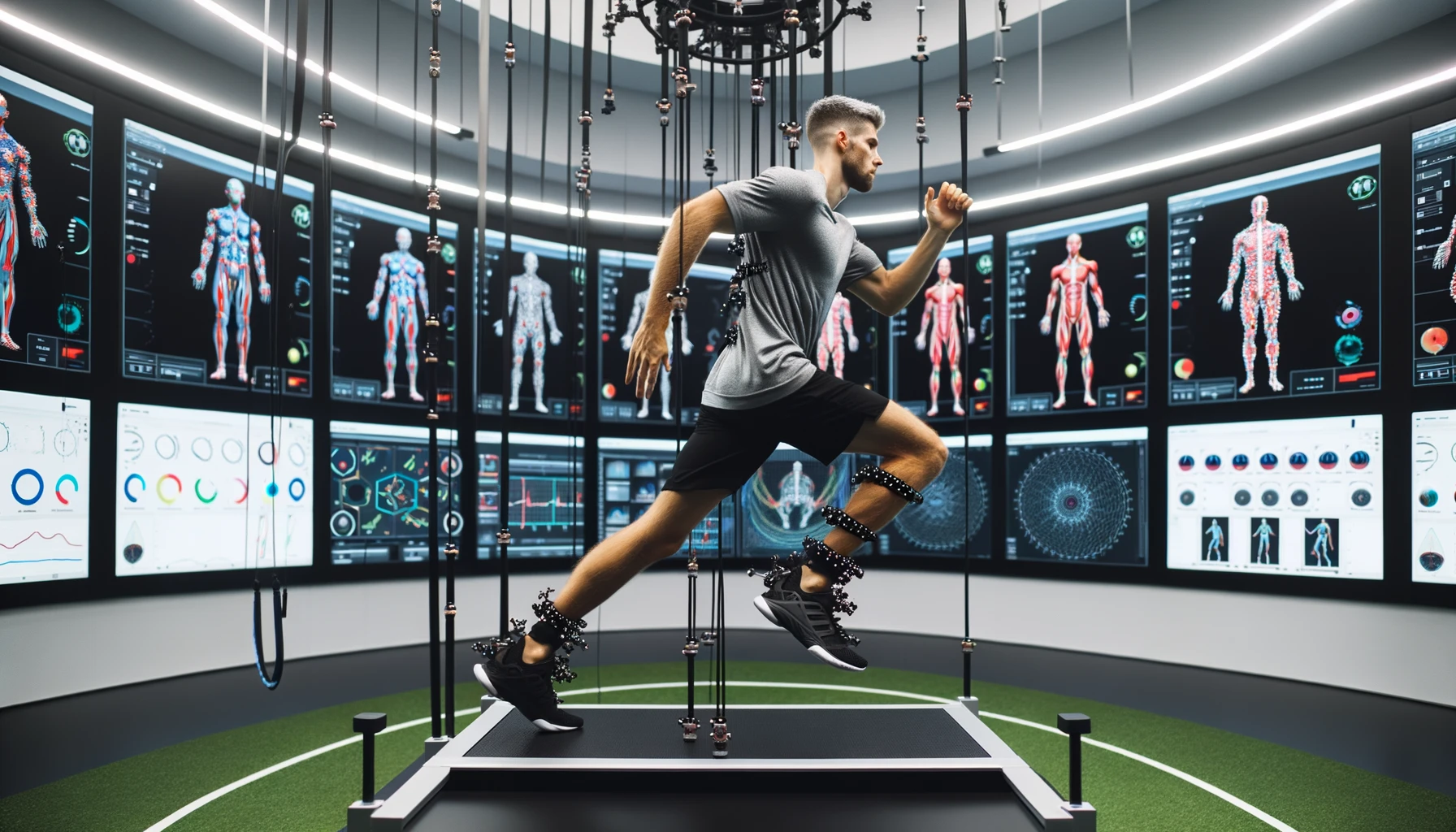
Welcome to our exploration of muscle testing in kinesiology, where we decode this fascinating practice and uncover its benefits and accuracy. Muscle testing, also known as applied kinesiology or manual muscle testing, is an alternative medicine practice used to diagnose various ailments. It works on the principle that internal issues are accompanied by muscle weakness.
While some forms of muscle testing may be helpful for muscle-related weaknesses, it has been found to be useless for diagnosing medical conditions. Applied kinesiology was practiced by chiropractors in the past, but it has been largely rejected by the medical community. However, muscle testing is a reliable diagnostic tool used in energy healing and theta healing to connect with the subconscious and identify hidden beliefs.
Muscle testing works by testing the strength or weakness of muscles and can be used to find subconscious issues and blocks. It can be done by a practitioner or self-tested using techniques like the sway test, testing on the wrist, or using finger and thumb. It is used as a diagnostic tool to determine the root cause of issues and to resolve past traumas.
Muscle testing provides insights into the subconscious mind and helps bypass the conscious mind’s critical thinking. It is a simple method to gain “innerstanding” and target the appropriate area for healing. Each item or thought has a unique energy signature that can be tested, and the response can indicate whether the body accepts or rejects the stimulus.
Muscle testing is a form of energy communication and can be used to ask yes or no questions, although the accuracy depends on the specificity of the question. To ensure accurate results, it is important to establish a strong connection with a partner when doing muscle testing.
Key Takeaways:
- Muscle testing is an alternative medicine practice used to diagnose various ailments.
- It works on the principle that internal issues are accompanied by muscle weakness.
- Applied kinesiology, the practice associated with muscle testing, has been largely rejected by the medical community.
- Muscle testing is a reliable diagnostic tool used in energy healing and theta healing to connect with the subconscious and identify hidden beliefs.
- It can be done by a practitioner or self-tested using various techniques.
What is Muscle Testing in Kinesiology?
Muscle testing in kinesiology involves the use of various techniques to assess the strength or weakness of muscles, allowing practitioners to gain insights into the body’s energetic imbalances. It is a diagnostic tool used to identify underlying issues and guide the healing process.
One popular technique used in muscle testing is the sway test. This involves standing upright with your feet together and asking a yes or no question. If your body tilts forward, it indicates a positive response or acceptance of the stimulus, while a backward tilt signifies a negative response or rejection. The sway test helps determine the body’s energetic alignment and can be a powerful tool in uncovering hidden beliefs or subconscious blocks.
Another technique commonly used in muscle testing is testing on the wrist. The practitioner applies gentle pressure to specific points on the wrist while monitoring the response of the muscles. Weakness or strength in these muscles can indicate imbalances related to specific organs or systems in the body.
“Muscle testing provides valuable insights into the body’s inner health secrets, allowing us to address imbalances and promote holistic healing.”
Finger and thumb testing is another method employed by muscle testing practitioners. By holding different substances or focusing on different thoughts, the practitioner can observe the strength or weakness of the muscles in response. This technique helps identify energy imbalances and can guide the selection of appropriate remedies or therapeutic interventions.
Understanding Muscle Testing Accuracy
Accuracy is a crucial aspect of muscle testing, as it can influence the reliability of the results. Various factors can impact accuracy, including the practitioner’s skill and experience, the specificity of the question being asked, and the connection between the practitioner and the person being tested. Establishing trust and a strong energetic connection is essential for accurate muscle testing outcomes.
Muscle testing is not a substitute for medical diagnosis but can complement other diagnostic methods and provide valuable insights into the underlying causes of health issues. It is widely used in energy healing practices such as theta healing, where it serves as a tool to connect with the subconscious mind and identify hidden beliefs that may be contributing to physical or emotional imbalances.
Ultimately, muscle testing is a versatile technique used in kinesiology to assess the body’s muscle responses and gain insights into energetic imbalances. Through its various techniques and applications, muscle testing provides valuable information for holistic healing and personal growth.
| Technique | Description |
|---|---|
| Sway Test | Standing upright with feet together, observing the body’s tilt or sway in response to yes or no questions. |
| Wrist Testing | Applying gentle pressure to specific points on the wrist to assess muscle responses related to specific organs or systems. |
| Finger and Thumb Testing | Testing the strength or weakness of muscles while holding substances or focusing on different thoughts. |
The Benefits of Muscle Testing in Kinesiology
Muscle testing in kinesiology provides numerous benefits, allowing for the identification of underlying issues and the potential for healing on a deeper level. This technique, also known as applied kinesiology or manual muscle testing, has proven to be a valuable diagnostic tool in alternative medicine practices.
One of the key benefits of muscle testing is its ability to uncover hidden imbalances within the body. By testing the strength or weakness of muscles, practitioners can gain insights into the root causes of physical, emotional, and energetic issues. Whether it’s identifying nutritional deficiencies, detecting allergies, or revealing unresolved emotional trauma, muscle testing offers a holistic approach to healing.
Moreover, muscle testing provides a direct connection to the subconscious mind. It allows practitioners to bypass the conscious mind’s critical thinking and tap into the body’s energy vibrations. With each item or thought having a unique energy signature, muscle testing can determine whether the body accepts or rejects a stimulus, providing valuable information for healing and growth.
The Role of Muscle Testing in Energy Healing
When it comes to energy healing practices like theta healing, muscle testing plays a vital role. It serves as a powerful tool to identify hidden beliefs and blocks that can hinder personal growth and well-being. By pinpointing these subconscious issues, practitioners can work towards releasing and resolving them, ultimately creating a path towards transformation.
It is important to note that muscle testing should be performed with accuracy and precision. Establishing a strong connection with a partner or practitioner is crucial to ensure reliable results. Moreover, asking specific and well-formulated questions can enhance the accuracy of muscle testing, providing deeper insights into the body’s needs.
| Muscle Testing Benefits |
|---|
| Identification of underlying issues |
| Revealing nutritional deficiencies and allergies |
| Detecting unresolved emotional trauma |
| Accessing the subconscious mind for healing |
| Releasing hidden beliefs and blocks |
Whether you are seeking to address physical ailments, emotional challenges, or simply gain a deeper understanding of your body’s needs, muscle testing in kinesiology offers a unique approach to holistic healing. By harnessing the power of muscle testing, you can embark on a transformative journey towards optimal well-being and self-discovery.
Muscle Testing Practitioners and Workshops
Muscle testing practitioners are skilled professionals who can guide you through the process, and attending workshops offers an opportunity to learn and experience muscle testing techniques directly. These practitioners have undergone extensive training in kinesiology and possess in-depth knowledge of muscle testing methodologies. They understand the nuances of muscle response and can interpret the results accurately. Whether you are seeking answers to specific health concerns or simply want to explore the potential of muscle testing, these professionals can provide valuable insights and guidance.
Workshops are an excellent way to immerse yourself in the world of muscle testing. They offer hands-on learning experiences where you can practice muscle testing techniques under the expert guidance of experienced practitioners. Workshops often include interactive sessions, demonstrations, and case studies to enhance your understanding of muscle testing. You can also interact with like-minded individuals and engage in discussions about the applications and benefits of muscle testing.
During these workshops, you will learn various muscle testing techniques, including the sway test, testing on the wrist, and using finger and thumb. You will also gain a deeper understanding of muscle testing’s role in diagnosing the root cause of issues and resolving past traumas. Additionally, workshops may cover topics such as energy healing, subconscious mind connection, and identifying hidden beliefs through muscle testing. These immersive experiences provide invaluable knowledge and skills that you can apply in your personal or professional life.
Table: Upcoming Muscle Testing Workshops
| Date | Location | Workshop Title |
|---|---|---|
| October 15-17, 2022 | New York, NY | Introduction to Muscle Testing: Exploring the Basics |
| November 5-7, 2022 | Los Angeles, CA | Advanced Muscle Testing Techniques for Healing Practitioners |
| December 3-5, 2022 | Chicago, IL | Mastering Muscle Testing: Unlocking the Secrets of the Subconscious Mind |
Attending a muscle testing workshop can be a transformative experience, enabling you to harness the power of this diagnostic tool for personal growth and holistic healing. It is an opportunity to connect with a community of individuals passionate about energy healing and kinesiology. So, whether you are a beginner or an experienced practitioner, consider joining a workshop to deepen your knowledge, refine your skills, and unlock the full potential of muscle testing.
Muscle Testing Certification and Courses
If you’re considering a career in muscle testing, there are certification programs and courses available that can equip you with the necessary skills and knowledge. These programs provide in-depth training on the principles and techniques of muscle testing, allowing you to become a certified practitioner in this field.
One popular certification program is the International College of Applied Kinesiology, which offers comprehensive courses on muscle testing and its applications. Through their program, you will learn the fundamentals of muscle testing, including how to assess muscle strength and weakness, interpret the results, and apply muscle testing in the context of holistic health.
Another option is the ThetaHealing Institute, which offers courses that incorporate muscle testing as part of their energy healing modality. These courses teach you how to use muscle testing to identify and release subconscious beliefs and traumas, facilitating deep healing and personal transformation.
The Benefits of Certification
Obtaining a muscle testing certification not only validates your expertise in this field but also opens up various career opportunities. As a certified muscle testing practitioner, you can work independently, offering muscle testing services to clients seeking holistic health solutions. You may also collaborate with other healthcare professionals, including chiropractors, naturopaths, and energy healers, to enhance the effectiveness of their treatments.
Additionally, having a certification can instill confidence in your clients, showing them that you have undergone rigorous training and adhere to professional standards. It can also give you access to a network of like-minded professionals and ongoing educational opportunities to further deepen your knowledge and skills.
Choose the Right Course for You
When selecting a muscle testing certification program or course, consider your specific interests and goals. Some programs focus on applied kinesiology, while others integrate muscle testing into broader energy healing modalities. It’s essential to research the curriculum, faculty, and accreditation of the program to ensure it aligns with your aspirations.
Remember, becoming a certified muscle testing practitioner is a journey of self-discovery and growth. By honing your muscle testing skills and understanding, you can make a positive impact on the well-being of others while embarking on a fulfilling career path.
| Certification Program | Program Details | Website |
|---|---|---|
| International College of Applied Kinesiology | Comprehensive training on muscle testing and its applications | www.icak.com |
| ThetaHealing Institute | Integration of muscle testing in energy healing modality | www.thetahealing.com |
Understanding Muscle Testing Accuracy
While muscle testing is a valuable diagnostic tool, it is important to understand the factors that can affect its accuracy and how practitioners work to ensure reliable results.
In muscle testing, the accuracy of the results can be influenced by various factors such as the practitioner’s skill level, the client’s state of mind and energy, and external environmental factors. To minimize these potential sources of error, practitioners undergo extensive training and practice to develop their muscle testing skills. They learn to create a conducive environment, establish an energetic connection with the client, and maintain a neutral mindset during the testing process.
Another important aspect of muscle testing accuracy is the specificity of the questions asked. The more specific and focused the question, the clearer the response from the body. Practitioners are trained to formulate precise questions that target the root cause of the issue being addressed. This helps to avoid ambiguity and ensure accurate results.
It is also crucial for the practitioner and client to establish clear communication and trust. This allows for a strong energetic connection and enhances the accuracy of the muscle testing. Practitioners often explain the process to the client, address any concerns, and create a safe space for open and honest communication.
| Factors influencing muscle testing accuracy | How practitioners ensure reliable results |
|---|---|
| Practitioner’s skill level | Extensive training and practice |
| Client’s state of mind and energy | Creating a conducive environment |
| External environmental factors | Maintaining a neutral mindset |
| The specificity of the questions asked | Formulating precise questions |
| Clear communication and trust between practitioner and client | Establishing a strong energetic connection |
In conclusion, muscle testing in kinesiology can provide valuable insights into the body’s inner health secrets. While it is an effective diagnostic tool, understanding the factors that can affect its accuracy is essential. By ensuring skillful practice, precise questioning, and open communication, practitioners can work towards reliable and accurate results in muscle testing.
Muscle Testing in Energy Healing
Muscle testing plays a vital role in energy healing, allowing practitioners to connect with the subconscious mind and identify hidden beliefs that may be impacting overall well-being. This technique, also known as applied kinesiology or manual muscle testing, is a reliable diagnostic tool used to uncover the root causes of various health issues.
During a muscle testing session, the practitioner applies gentle pressure to specific muscles while the client holds a thought, object, or affirmation. The response of the muscle indicates whether the body accepts or rejects the stimulus, providing valuable insights into the client’s energy vibrations and subconscious mind.
By using muscle testing in energy healing, practitioners can effectively bypass the critical thinking of the conscious mind and gain direct access to the underlying beliefs and traumas that may be affecting the client’s well-being. This allows for targeted healing and the identification of specific blocks that may be hindering personal growth and overall health.
Practitioners may use various techniques, such as the sway test, testing on the wrist, or using finger and thumb, to conduct muscle testing. It is important to establish a strong connection with the client and create a safe and trusting space for accurate results. The accuracy of muscle testing in energy healing varies depending on the specificity of the questions asked and the practitioner’s expertise.
FAQ
What is muscle testing in kinesiology?
Muscle testing in kinesiology is a diagnostic tool used to identify underlying health issues by testing the strength or weakness of muscles. It involves techniques that assess the body’s response to various stimuli, providing valuable insights into the body’s inner workings.
How does muscle testing work?
Muscle testing works by evaluating the body’s energy vibrations and testing the response of muscles to different stimuli. Each item or thought has a unique energy signature that can be tested, indicating whether the body accepts or rejects the stimulus. This technique is used to ask yes or no questions and pinpoint areas for healing.
What are the benefits of muscle testing in kinesiology?
Muscle testing in kinesiology offers several benefits. It can help identify underlying issues, resolve past traumas, and gain insights into the subconscious mind. By bypassing the conscious mind’s critical thinking, muscle testing provides a simple method for understanding and addressing various health concerns.
Who can perform muscle testing?
Muscle testing can be performed by trained practitioners or self-tested using techniques like the sway test, testing on the wrist, or using finger and thumb. If you are interested in experiencing muscle testing firsthand, there are workshops and courses available where you can learn from experts in the field.
How accurate is muscle testing?
Muscle testing accuracy can vary depending on factors such as the specificity of the question and the connection between the practitioner and the individual being tested. Practitioners strive for reliable outcomes, but it is important to understand that muscle testing is an alternative medicine practice and may not be recognized by the medical community as a definitive diagnostic tool.
How is muscle testing used in energy healing?
Muscle testing is used in energy healing to connect with the subconscious mind and identify hidden beliefs or blocks. It is a form of energy communication that helps practitioners gain insights into the root causes of issues and facilitate healing at a deeper level. Muscle testing is often incorporated into techniques like theta healing and can be a powerful tool for personal transformation.



